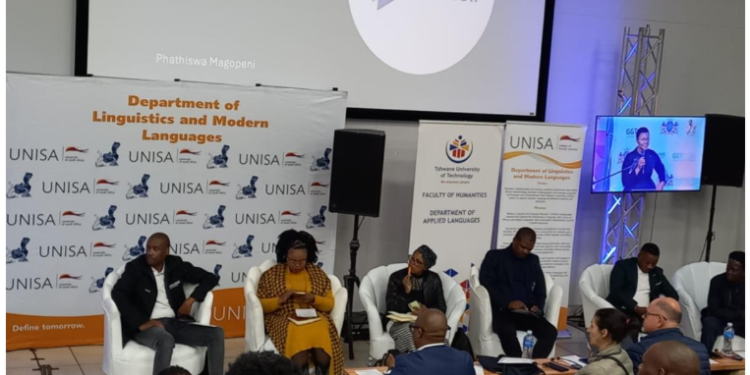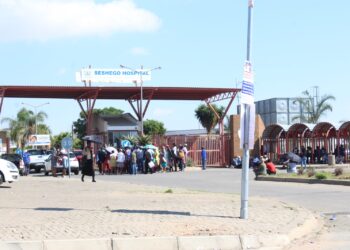The Tshwane University of Technology (TUT), North Campus, hosted a vibrant and inspiring Language Practitioners Connect marketing summit on Thursday, 24 July, at the New Auditorium. The event brought together language professionals, students, and stakeholders from various institutions and provinces across South Africa. The summit aimed to empower emerging language practitioners, promote collaboration between academia and industry, and highlight the importance of language in economic development.
The Gauteng Department of Sport, Arts, Culture and Recreation, in collaboration with Tshwane University of Technology, the University of South Africa, North-West University’s Language Directorate, the Central University of Technology, the Linguistic Society of South Africa, and the Pan South African Language Board, participated in the summit. Over 60 attendees gathered to explore the intersection of language practice, entrepreneurship, and technology.
Organised by TUT’s Department of Applied Languages in partnership with the Faculty of Humanities, the summit featured keynote speeches, panel discussions, and interactive networking sessions. The purpose of the event was to address key issues in the field, including the economic value of language careers, the role of mother-tongue education, and the need to preserve African languages in the digital era.
“The whole idea around languages is not simply about language itself. It derives its essence from why we need information in languages we understand—so that we can exercise all other rights as South Africans,” said Ms Phathiswa Magopeni, Executive Director of the Press Council of South Africa.
“We come from an institution that evolved from a former Afrikaans university. The beautiful thing is that we are now taking the same lessons that helped develop Afrikaans and using them to develop our own languages, like Setswana and Sesotho,” said Dr Keaobaka Seshoba of North-West University.
Students also shared the challenges they face as language practice students, particularly around unemployment and the difficulty of securing jobs after graduation. One of the main issues raised was the lack of practical training and industry exposure, which makes the transition into the workforce difficult. Many universities offer limited internship opportunities, leaving students without hands-on experience in areas such as translation, editing, interpreting, or terminology work. In addition, there is low public awareness and recognition of the language profession, which results in fewer job opportunities and limited funding for language departments.
“We are currently struggling to get jobs, and some students don’t even know where they’re going to do their practical training,” said Malatji Khutso, a third-year Language Practice student.
Some speakers offered advice to students on how to secure placement for practical training. The event was hailed as a major success, with participants calling for more frequent gatherings of this nature to support language preservation, cultural pride, and youth empowerment in South Africa’s rapidly evolving media and communication landscape.
















